Network Administration
Program Description
The associate of science degree in network administration is a composed of a combination of courses that provide entry-level skills in areas such as network design and administration and network configuration. The course work emphasizes Windows and A+ training. This program is designed to prepare graduates for entry-level employment in network administration.
Why Network Administration?
The rapid spread of computers and information technology has generated a need for highly trained workers to design and develop new hardware and software systems and to incorporate new technologies. Computer support specialists and systems administrators are projected to be among the fastest growing occupations over the 2002-2012 period, according the U.S. Department of Labor, Occupation Outlook Handbook.
The Network Administration Program is relevant due to the need for certified system engineers.
Possible Employment Opportunities *
- Service Technician
- Customer Support
- Network Support Specialist
- Telecom Data Technician
- A+ Certified Technician / Network •Support Center Client – Server
- Technology Technician
- Help Desk Technician
- Network Field Technician
Credential Earned
Associate of Science Degree in Network Administration
Related Certifications
- Comp TIA A+ Hardware and Software
- Comp TIA Network+
Duration of the Program
Core Courses
A+ Hardware
This course provides an overview of computer hardware on a personal computer. The course focuses on the structure and function of the computer, including I/O devices, network protocols, set-up, and troubleshooting. Available microprocessor systems are also discussed. Students will be able to identify differences between I/O devices, and set up and troubleshoot hardware and networks. Lab included.
A+ Software
This course provides students with an in-depth explanation of the common computer configurations and operating systems. Also, they will be introduced to diagnostic software and troubleshooting techniques, including security strategies. Students will be able to diagnose, resolve, and document software issues as they relate to various devices. Lab included.
TCP/IP Configuration
This course is designed to provide students with the knowledge and skills required to install, configure, use, support, and troubleshoot the TCP/IP suite on operating systems. The course will be focused on IP addressing, IP packet structures, data link, and network layer protocols. Students will practice how to determine and use the transmission control protocols/Internet protocol. Lab included.
Pre-requisite: EEL1100
Routing and Switching
This course covers the components used to segment a LAN (local area network) including bridges, switches, and routers. The course provides a greater understanding of the access control list, routing protocols, LAN (local area network) and
WAN (wide area network) design, switching, VLAN (virtual local area network), and frame relay. Students will develop the skills required for implementing and configuring network devices. Lab included.
Networking Fundamentals
The goal of this course is to provide students with an introduction to networking technologies and design. They will receive training in technology standards, governing bodies, hardware, security, troubleshooting, and site survey methodology. Students will be able to assess the benefits and limitations of various cabling options, implementation of WLANs (wireless local area networks), and the use of virtual local area networks (VLANs). Lab included.
Security Fundamentals
This course provides an overview of the system security issues. The course will be focused on security methods including encryption, authentication, key generation, auditing, monitoring, and risk evaluation. Confidentiality/privacy, integrity, availability, and control of fraudulent usage of networks are also discussed. Students will be able to secure equipment configuration and placement within the different types of network. Lab included.
Windows Professional
In this course, students will study all the functions and features of installing, configuring, and maintaining operating systems. In-depth details are presented on implementing, managing, and troubleshooting hardware devices and drivers, network protocols, and security, monitoring and optimizing performance and reliability, and configuring and troubleshooting the desktop environment. Students will implement, manage, and troubleshoot storage, display, and peripheral devices. Lab included.
Windows Server
This course prepares students to properly install, configure, and administrate a server of a domain in an active directory environment. The course will be focused on installing the server, local and remote server management, configure the server storage and file and printers’ services. Students will be able to deploy and configure core network services and install and administer an active directory. They will also be able to configure specific DHS (dynamic host configuration). Lab included.
Prerequisite: PRG2100
Windows Network Infrastructure
This course prepares students to properly install, configure, monitor, and troubleshoot the fundamental elements that allow for interoperability in a Windows-based LAN (local area network). The course will be focused on deploying the windows server, updates management, monitoring and auditing the server, remote access configuration, domain controller, and active directory, including subscriptions and licenses. Students will be able to deploy, manage, and maintain servers. Lab included.
Prerequisite: PRG2110
Related Programs
Campuses Available
Admission Requirements
High school diploma or a recognized equivalent.
Possible Employment Opportunities *
- Service Technician
- Customer Support
- Network Support Specialist
- Telecom Data Technician
- A+ Certified Technician / Network •Support Center Client – Server
- Technology Technician
- Help Desk Technician
- Network Field Technician
* These examples are intended to serve only as a general guide of possible employment opportunities. There are many factors that determine the job an individual may obtain and Florida Technical College cannot guarantee its graduates any particular job. Some positions may require a license or other certifications. We encourage you to research the requirements for the particular position you desire.

